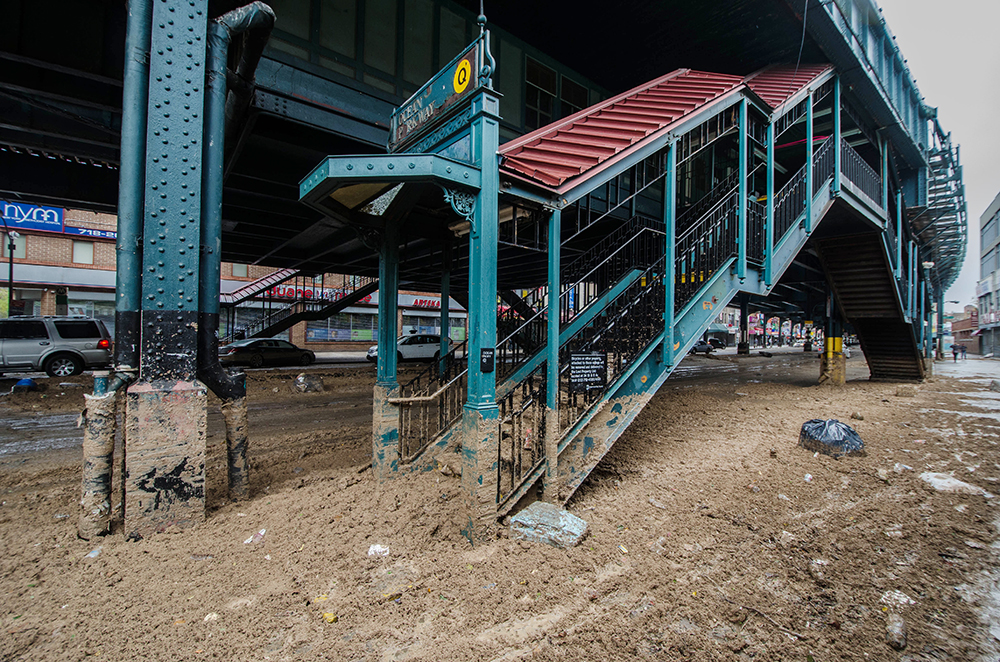Comptroller Stringer and Council Member Constantinides Op-Ed: Restart Sustainable Infrastructure Investments to Stimulate Economy and Combat Climate Change

New York City’s 14% unemployment rate outpaces the national average; people of color and immigrant New Yorkers continue to bear the brunt of city’s job losses
Stringer and Constantinides: This isn’t a moment to fold on investments in sustainable infrastructure – we need to double down. Interest rates are low, the labor is available, and the urgency to fight climate change is clear.
(New York, NY) — Crain’s New York today published an op-ed by New York City Comptroller Scott M. Stringer and City Council Member Costa Constantinides on the urgent need to restart investments in sustainable capital projects in order to create jobs, boost our city’s economic recovery, and build a greener, more resilient future. Comptroller Stringer and Council Member Constantinides underscore that sustainable capital projects would be an economic lifeline to communities hit hardest by COVID-19, including people of color and immigrant New Yorkers who continue to bear the brunt of the city’s job losses, as well as minority and women-owned businesses already facing systemic disparities that are at risk of permanent closure.
Text of the op-ed is available below and can be viewed online here.
Staring down near-bankruptcy forty years ago, New York’s leaders made the decision to put off critical infrastructure upgrades. Decades later, we’re still paying the price for that shortsighted disinvestment – every time we wait on the subway platform for a train that never seems to arrive or crowd into a hospital many times over capacity.
Now, we stand to make the same mistake on a larger scale, with even greater consequences: neglecting our generational fight against climate change. Since March, Mayor de Blasio has put a hard stop on nearly all new capital projects, including those designed to help clean up polluting buildings and strengthen resiliency.
This isn’t a moment to fold on investments in sustainable infrastructure – we need to double down. Interest rates are low, the labor is available, and the urgency to fight climate change is clear.
COVID-19 laid bare the systemic disparities that run through our city – and revealed the human cost of environmental injustice and our past disinvestments in climate solutions. Poor air quality, higher rates of asthma, congestion, overcrowding and lack of green outdoor space left entire neighborhoods overexposed in the darkest days of the pandemic. And as hurricane after hurricane batter our shores, attempts to claw back funding for sustainable building retrofits and resiliency projects undermine frontline communities threatened by both rising seas and rising rates of COVID-transmission. We should seize this opportunity to put New Yorkers to work on the projects that will guarantee better air, safer shorelines, and a more sustainable future for our city.
Sustainable capital projects would also be an economic lifeline to communities hit hardest by COVID-19. New York City’s 14% unemployment rate far outpaces the national average, and people of color and immigrant New Yorkers continue to bear the brunt of our city’s job losses. Minority and women-owned firms, already contending with systemic disparities, report that they are on the brink of permanent closure. Government construction contracts for sustainability and resiliency upgrades would generate a pipeline of well-paid opportunities for businesses who need steady revenue to keep the lights on and the doors open.
Renowned economists from John Maynard Keynes to Joseph Stiglitz agree: public sector investment is the fastest, surest way to escape a depression and put people back to work. Climate Works for All estimates a $16.2 billion investment in sustainability and resiliency will yield 100,000 jobs in just three years – that would put 15 percent of New York’s currently unemployed workforce back on the payroll. The energy efficiency retrofits under that plan, the centerpiece of last year’s Climate Mobilization Act, can create 42,000 jobs alone. President-elect Joe Biden has embraced the role of government in his plan to jumpstart the nation’s economic recovery, with a particular focus on creating green jobs.
The ways in which the pandemic has permanently changed the face of industry are coming into stark relief as our economy slowly reopens. Lower-wage, service-oriented industries were most impacted by the current recession. New York City shed more than 253,000 service industry jobs alone, and many of them aren’t coming back. As we rebuild, we need to invest in and expand opportunities in emerging sustainability sectors that can produce good-paying green jobs able to withstand future economic shock.
Before COVID-19 shut New York City down eight months ago, we were on our way to being the global leader in the fight against climate change. Now the City’s capital commitments are half of what we expected this year. That puts a giant question mark over New York’s historic initiative to shrink large buildings’ collective carbon footprint by 40 percent over the next decade.
Climate change is impervious to balance sheets. We cannot afford to kick the can down the road on what is a clear and present danger to this generation and the next. Investments in sustainable infrastructure are smart fiscal, social, and environmental policy that we should jumpstart immediately.
###